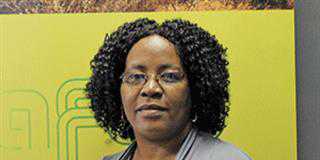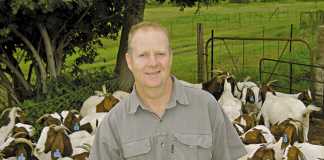You were both intimately involved in the development of the rural safety strategy. Were you happy with the outcome?
André Botha (AB): Before understanding the value of the strategy comes a need to say something about the essence of rural safety. There’s a certain social and economic fabric in the rural areas held together by a golden thread. The South African government envisions rural areas which will uphold the goals, vision and mission of the country. If the thread breaks there will be an implosion, and I’m not talking about food security, I’m talking about a way of life.
Many people don’t realise that the commercial farmer is but a role player in the rural areas. Rural safety is not about the commercial farmer, it’s about instilling responsible citizenship across the board. For two years now we’ve said that the police are scapegoated. The problem we really face in the rural areas is a moral one. It’s the abdication of responsibilities at the most primary level, which is the household.

From left: Kobus Breytenbach, vice-chairperson of Agri SA’s Rural Safety Committee, André Botha, chairperson of Agri SA’s Rural Safety Committee, Lt Gen Masemola, Lt Gen Mothiba of the SA police, Hans van der Merwe, executive director of Agri SA and Brig J le Roux, chairperson of the Rural Safety Priority Committee. Courtesy of Agri SA
The government continually talks of the existence of ubuntu, this fundamental African belief that “I am because you are”, which is the same as saying we’re one big extended family system. But if communities are families, how the hell can kids go hungry for three weeks when the neighbours know there are no parents? That’s what’s starting to happen in the rural areas, and that’s the essence of the rural safety programme that we were part of developing. People take co-responsibility for what happens in communities. With responsibility comes accountability.
Kobus Visser (KV): It was developed at national level and we were very involved in the development process, as were several other stakeholders and government departments. The fact that the consultation process was so open meant that everyone could reach points of mutual agreement and still feel satisfied that the system would work. This is one of the best plans for rural safety the country has ever seen.
How does the strategy enable responsible citizenship?
KV: The strategy has 10 aims, one of which is community involvement. It describes a number of ways communities can engage the strategy, from becoming reservists, to getting involved in sector policing. It implores communities to take the initiative to get organised, to build bridges. Subsectors can be formed within a police precinct. In practice this means that where commercial agriculture dominates, farmers, reservists and sector policing can rally together to target specific problems. Similarly, although the type of problems will be different, a rural village can establish a subsector.
AB: Rural citizens have to take responsibility for their own safety. Criminals study their victims. Just as they know there will be cash available if you sell chickens on your farm, so they know when you are involved in a community safety structure. If you’re not, it makes you vulnerable to criminals.
KV: The majority of farm attacks target premises and people who do not belong to agricultural organisations. This may sound self-promoting but it’s a fact.
The strategy was launched last year, but to date, as someone who frequently visits a number of rural communities, I have seen little evidence of implementation. Does Agri SA have a role to play in strategy implemention in specific areas?
AB: We need to go back to the concept of responsible citizenship. It’s not Agri SA’s role to monitor the roll-out of this strategy. I’m going to shock you now and say rural communities will get what they deserve. If they take responsibility for what’s happening around them, they will prosper, if they don’t, they won’t. As an institute, we have mechanisms in place where member organisations can, after they’ve been through the strategy and initiated systems from their side, ask Agri SA for assistance.
We are not an inspectorate, we are not there to police the police. If a provincial commissioner or station commander does not co-operate with a local farmers’ association they can ask their provincial union to help. If the provincial union fails to find a solution with the provincial police commissioner, then we as Agri SA will take it to the national level.
KV: If farmers have taken initiatives to protect themselves at local level and to implement working systems, they can apply to the Agri Securitas Trust Fund for assistance. This assistance can be used to safeguard themselves in conjunction with the police and the local community.
The Agri Securitas Trust Fund predates the rural safety strategy. Is Agri SA doing anything new to help activate the strategy?
KV: A lot of the trust fund’s activities correspond closely to the rural strategy. For example, the strategy makes provision for an access protocol, so we developed a protocol that enables state departments to enter farms in a structured way, by appointment. It doesn’t take away the mandate that certain state departments have, to enter farms in order to conduct inspections and investigations, but it gives some protection to the farming community with control of who comes and goes.
Secondly, we’ve developed a strategy for farmers which explains how they should deal with land invasions.
AB: For example, the issue of hunting on farms with dogs is a highly emotional one which can, and has, led to bloodshed.
Usually the parties involved don’t know their rights. So we have asked the police to establish a point by point protocol. This is done in the spirit of the rural safety strategy.
Going back to what has been achieved in terms of rural safety strategy so far. Can you point to areas where it is working for farmers?
KV: There were a few pilot projects and the results were phenomenal. In the Eastern Cape at Tsolo, where farmers had been dealing with some of the highest rates of stock theft in the country, stock theft dropped drastically.
AB: At the moment the areas where rural safety is under control are those which were well organised before the launch of the rural safety strategy. They have been run mostly along the lines of the Rural Protection Plan, which was the rural safety strategy’s predecessor, a Mandela-era initiative.
There are areas where there are no community safety systems at all and areas where there are semi-dysfunctional ones. I say semi-dysfunctional because there are usually at least two groups of farmers – a group which works with the authorities and another which does not.
For example, I’ve started to pull some of the farmer groups in our area into meetings. In one group there is a leading individual who keeps saying that the rural safety strategy won’t work. He doesn’t understand that we can’t live in the past. We’ve created a structure and it’s up to the community to buy into the structure and make it work for themselves. But instead this person and people like him prefer to point fingers at the police, to say that the police never patrol.
The question to ask is: Why? Perhaps because the police were chased from a certain farm, or because the farmer called them skelms. There are also times when a patrol on night shift in midwinter might come to the gate of a farm and find a flask of coffee there with something to eat.
KV: If a farmers’ association complains about the police, the questions to ask are: Have they become involved with police stations? Have they approached the station commander and said, “Here’s our strategy, can we talk to you to prevent such a thing from taking place?”
Are their sub-sectors already in place? Have they spoken to that police station about farm invasions? Have they spoken to that police station about farm visit protocols and how they can be implemented? Have they asked the police how they can assist with patrols? The farming community at local level has a huge responsibility to get themselves organised. We can’t implement the safety strategy at a national level, implementation lies in building relationships at local level.
Do you have any concerns about the rural safety strategy?
KV: One of the critical pillars of the strategy is the incorporation of reservists as force-multipliers. Currently we are awaiting the release of the revised reservist policy before reservists can be actively recruited. Once this has taken place full implementation will be possible.
In the time it took to develop the strategy there have been three different police commissioners. Surely this has an impact on the roll-out of the strategy?
AB: Not necessarily, the strategy is the responsibility of a section in the SA police national office, called Proactive Policing and Crime Reduction. It just gets on with its mandate, regardless of what’s happening above it. That said, when Riah Piyega was appointed commissioner we wrote to congratulate her and requested a meeting, as we always do. It was a very pleasant surprise when she wrote back to say she would be happy to meet. That meeting took place in September.













